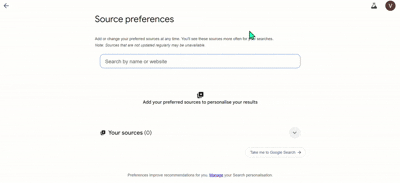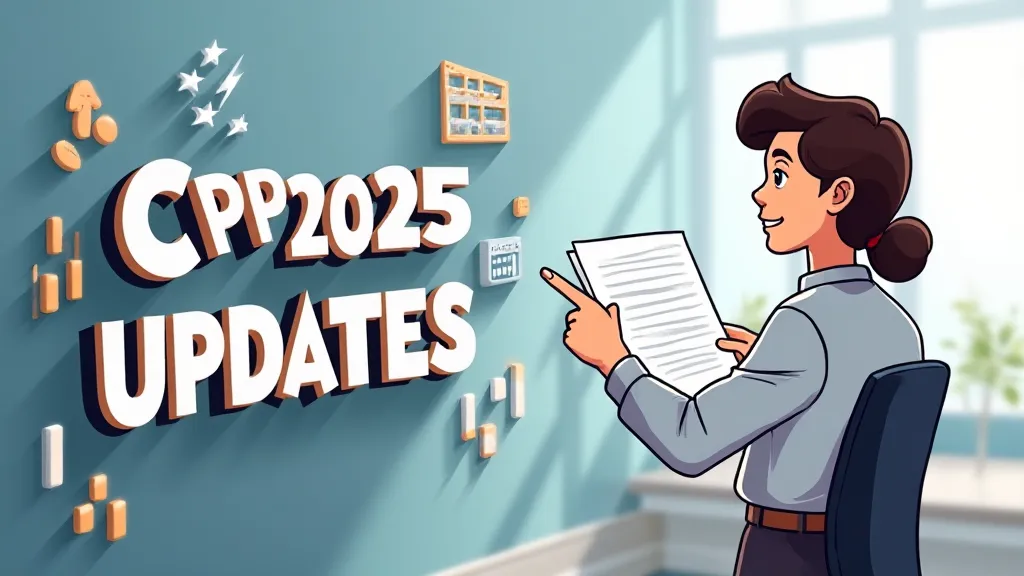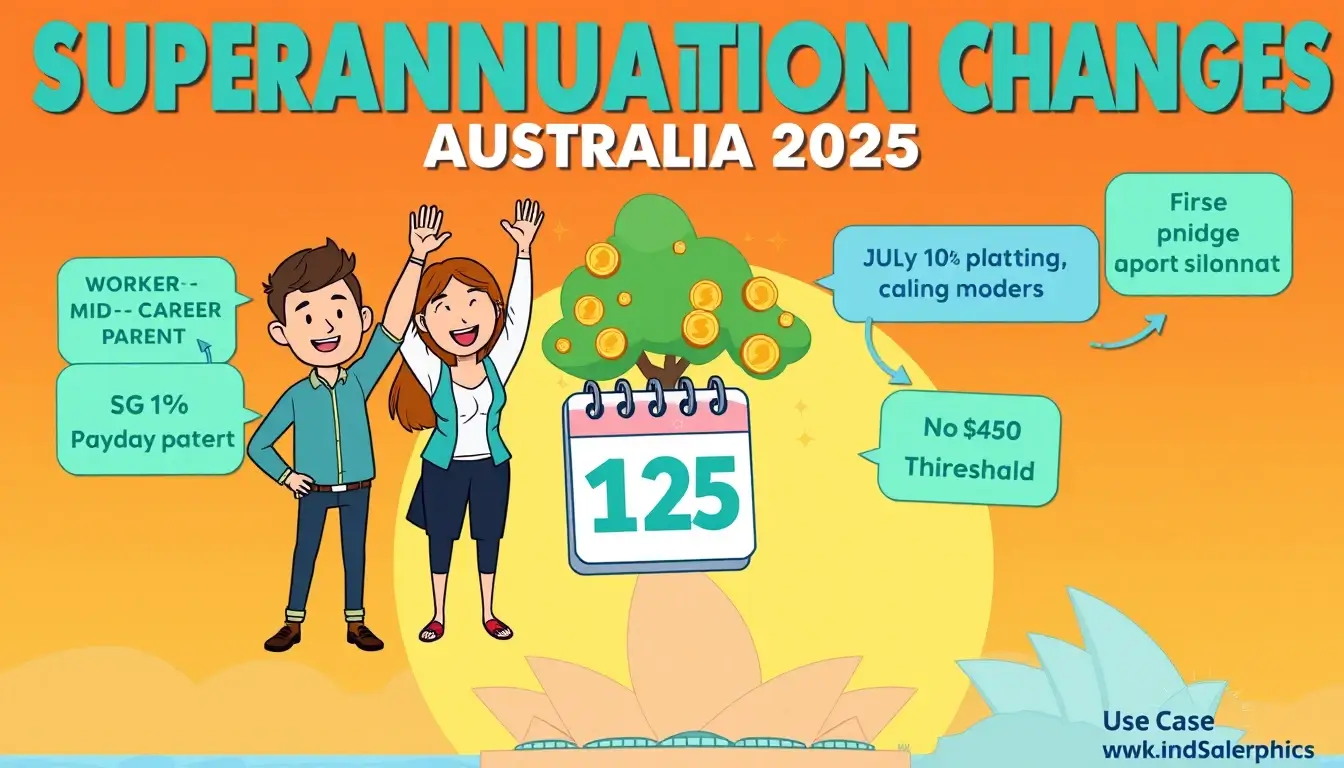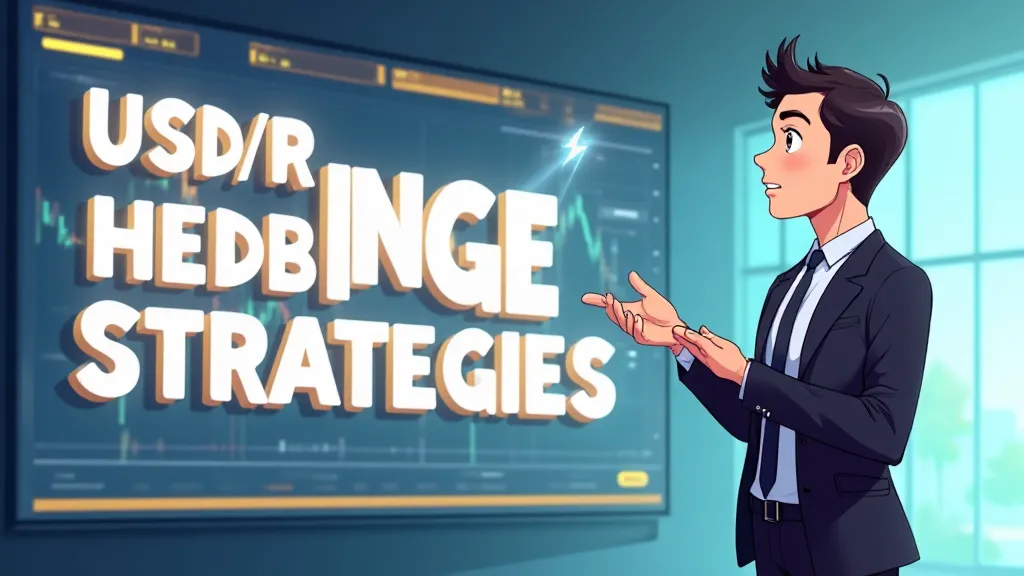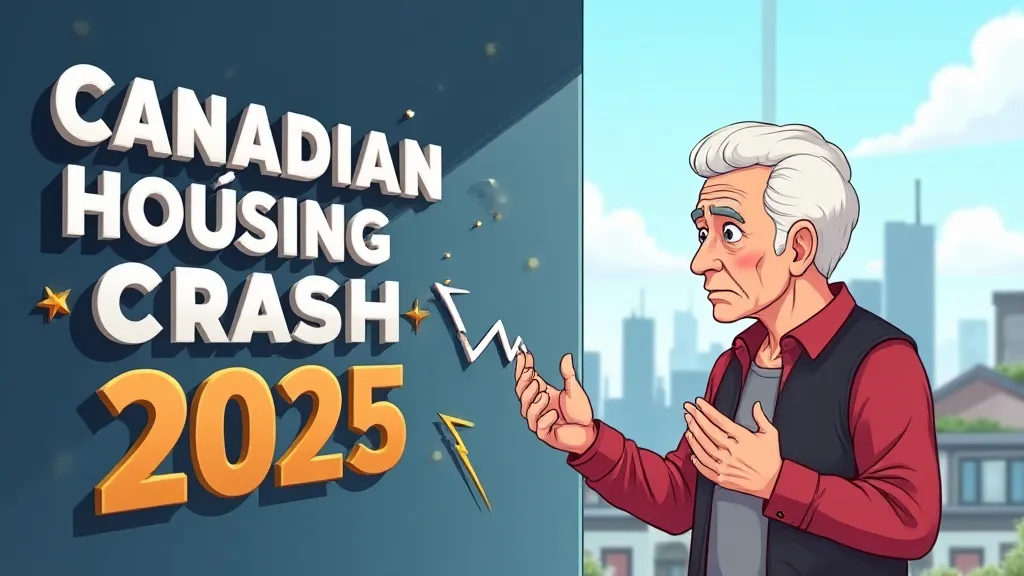
Hi friends! Let’s have a real talk about something that’s probably been keeping you up at night – the scary headlines about a Canadian Housing Market Crash 2025 and what it could mean for your golden years. वैसे तो, the news is full of doom and gloom, but is your retirement really at risk? In this post, we’re going to break it all down in simple terms. We’ll look at how a potential Canadian real estate crash could affect your CPP, your OAS, and your overall retirement planning. Most importantly, we’ll give you a clear action plan to protect your nest egg, no matter what happens. So, grab a chai, get comfortable, and let’s get into it!
Understanding the 2025 Canadian Housing Market Crash Predictions
What Experts Are Saying About the Market
The chatter about a potential Canadian Housing Market Crash 2025 is not just baseless fearmongering; it’s rooted in observable economic trends. Major financial institutions and analysts are closely monitoring key indicators like soaring household debt levels, which have reached a record 184% of disposable income according to Statistics Canada, and the rapid pace of interest rate hikes by the Bank of Canada. These factors, combined with decades-high inflation, are creating a perfect storm of affordability issues that could push the market into a significant correction. The central question isn’t necessarily if a correction will happen, but rather how severe it might be and how long it could last, making informed retirement planning Canada more crucial than ever.
The Role of Interest Rates and Inflation
Interest rates are the primary lever controlling the Canadian real estate crash narrative. After years of historic lows, the aggressive tightening cycle has dramatically increased the cost of borrowing. For many Canadians, especially those who purchased homes at peak prices with variable-rate mortgages, this has led to unprecedented financial strain. The Bank of Canada faces a difficult balancing act: combat inflation without triggering a deep recession or a housing meltdown. This delicate situation directly impacts your retirement savings risk, as a sharp downturn could deplete the home equity many are counting on to fund their retirement years.
Historical Context of Market Corrections
It’s vital to view the current predictions through a historical lens. Canada’s housing market has experienced corrections before, though none have been preceded by such a massive run-up in prices. The early 1990s saw a prolonged slump where prices took nearly a decade to recover in some regions. However, the fundamental drivers today—demographics, immigration policies, and supply constraints—are different. Honestly, while a full-blown Canadian Housing Market Crash 2025 is a possibility, a more probable scenario is a sustained period of stagnation or moderate price declines, which would still have serious implications for retirement planning strategies built on ever-appreciating home values.
Regional Variations and Vulnerabilities
You know what? Not all markets are created equal. The potential for a Canadian real estate crash varies dramatically across the country. Markets that saw the most explosive growth during the pandemic, such as parts of Ontario and Atlantic Canada, are considered most vulnerable to a sharp pullback. Conversely, markets with more stable fundamentals might experience a softer landing. Understanding your specific regional context is a critical first step in assessing your personal exposure and making necessary adjustments to your retirement planning Canada approach. The single most important thing to remember is that your home’s value is not a guaranteed retirement fund.
How a Canadian real estate crash Directly Threatens Your retirement planning Canada
The Home Equity Retirement Plan Myth
For a generation of Canadians, their home has been their largest investment and the cornerstone of their retirement planning strategy. The plan was simple: pay off the mortgage and either downsize to unlock equity or use a reverse mortgage to fund retirement. A significant Canadian Housing Market Crash 2025 would shatter this plan for many. If property values fall 20-30%, a large portion of that presumed wealth evaporates. This isn’t just a paper loss; it translates into a real reduction in potential retirement income, forcing a drastic reevaluation of lifestyle expectations and creating immense retirement savings risk for those who are over-exposed to real estate.
Impact on Investment Portfolios and Savings
The threat extends far beyond the value of your principal residence. A severe Canadian real estate crash would have a contagion effect on the broader economy and, consequently, the stock market. Industries like banking, construction, and real estate services would be hit hard, potentially dragging down the entire TSX. If a significant portion of your retirement savings is invested in Canadian equities or real estate investment trusts (REITs), your portfolio could suffer a double blow. This interconnectedness means that even retirees who rent are not immune to the effects of a housing downturn, highlighting the need for truly diversified financial planning for retirement that can withstand sector-specific shocks.

The Reverse Mortgage and Downsizing Dilemma
Two popular strategies for funding retirement are suddenly thrown into question. Reverse mortgages, which allow homeowners to borrow against their home’s equity, become less viable or more expensive if that equity shrinks. Similarly, the downsizing strategy—selling a large family home to buy a smaller property and pocket the difference—relies on a strong market. In a crash scenario, you might sell your home for less than expected while still paying a premium for a smaller, in-demand property like a condo, leaving you with little to no profit. This directly impacts seniors housing affordability and can leave retirees with fewer options and less financial flexibility than they had planned for.
Psychological Impact and Sequence of Returns Risk
Beyond the numbers, a market crash creates a powerful psychological fear that can lead to poor financial decisions. The temptation to sell investments at a loss to “stop the bleeding” can be overwhelming, especially for those already in retirement who are drawing down their savings. This is known as sequence of returns risk—the danger of experiencing significant market losses in the early years of retirement, which can permanently impair the longevity of your portfolio. A proactive, well-structured financial plan is your best defense against making emotionally-driven mistakes during a potential Canadian Housing Market Crash 2025. It provides a disciplined framework to navigate volatility.
CPP OAS impact: Will Your Government Pensions Be Enough?
The Stability of CPP and OAS in a Crisis
Let’s address the biggest concern head-on: the direct CPP OAS impact of a housing crash. The good news is that these programs are designed to be resilient. The Canada Pension Plan (CPP) is not funded by government taxes but by investments, and it is considered one of the most stable pension funds in the world. The Old Age Security (OAS) program is funded from general tax revenues. While a severe economic downturn Canada could put pressure on government budgets, it is highly unlikely that payouts for these programs would be cut. They are a foundational, secure layer of retirement income. However, the key word is “foundational”—they were never intended to be the sole source of income.

The Adequacy Gap in a High-Cost Environment
The real CPP OAS impact question isn’t about solvency, but about adequacy. The maximum monthly CPP payment for a new retiree in 2025 is projected to be around $1,600, while the full OAS pension is about $700. For a single person, that’s a maximum of roughly $2,300 per month before taxes. Now, consider the cost of living, especially if a housing crash is accompanied by persistent inflation. If you still have a mortgage or are renting, housing costs can consume a huge portion of this income. This stark reality underscores why relying solely on government benefits is a risky strategy and why personal retirement savings are non-negotiable for a comfortable retirement.
Clawbacks and Your Total Income
An often-overlooked aspect of the CPP OAS impact is the OAS recovery tax, or clawback. If your net annual income exceeds a certain threshold (approximately $90,000 in 2024, adjusted for inflation), you must repay part or all of your OAS benefit. For retirees who have built substantial savings in RRSPs, a forced withdrawal of funds during a market downturn to cover living expenses could inadvertently push their income into clawback territory. This effectively increases their tax bill and reduces their net government benefit, creating an additional financial headwind during a vulnerable time. This is a critical consideration in your overall financial planning for retirement.
GIS and Low-Income Seniors
For low-income seniors, the Guaranteed Income Supplement (GIS) provides critical additional support on top of OAS. The potential CPP OAS impact here is more nuanced. A housing crash that leads to a broader recession could increase the number of people qualifying for GIS, reinforcing its importance as a social safety net. However, for seniors who were counting on income from investments or part-time work to stay above the GIS threshold, a loss of that income could plunge them into financial difficulty. The stability of CPP and OAS is a blessing, but it does not make you immune to the secondary effects of a Canadian real estate crash on your overall financial picture.
Navigating a Potential Canadian pension crisis and retirement savings risk
Defining the “Pension Crisis” for Individuals
While Canada is not facing a systemic government Canadian pension crisis like some other nations, individuals can absolutely face a personal pension crisis. This occurs when there is a severe mismatch between expected retirement income and actual needs. A Canadian Housing Market Crash 2025 could be the trigger for many such personal crises. The crisis isn’t that CPP will disappear, but that the value of other assets—homes, investment portfolios, private pensions—could deteriorate rapidly. This dramatically increases your personal retirement savings risk, exposing an over-reliance on a single asset class and a lack of a contingency plan for market downturns.
The Domino Effect on Other Retirement Income Sources
The risk is rarely isolated. A housing market crash can start a domino effect. As property values fall, consumer confidence plummets. Spending decreases, businesses earn less, and corporate profits shrink. This can lead to dividend cuts from the blue-chip stocks many retirees rely on for income. Furthermore, if the crash triggers a deep recession, it could threaten the solvency of some company-defined benefit pension plans, potentially putting those promised benefits at risk. This interconnectedness means that a correction in the housing market can quickly amplify overall retirement savings risk across multiple income streams, making diversified financial planning for retirement essential.
Longevity Risk in a Depressed Market
One of the greatest risks retirees face is outliving their money—longevity risk. A market crash at the wrong time magnifies this risk exponentially. If you retire at 65 expecting a 30-year retirement and your portfolio loses 30% of its value in the first two years, the math of recovery becomes incredibly difficult. You are forced to sell depressed assets to cover living expenses, locking in losses and reducing the capital needed for future growth. This scenario underscores why a well-crafted plan must account for volatility and include strategies to mitigate sequence of returns risk, protecting you from a personal Canadian pension crisis.
Re-evaluating Risk Tolerance and Time Horizon
Honestly, the possibility of a Canadian Housing Market Crash 2025 is a stark reminder to honestly reassess your risk tolerance and time horizon. If you are within five years of retirement, your investment strategy should be proactively shifting towards capital preservation. This might mean reducing exposure to volatile assets like stocks and overvalued real estate and increasing holdings in more stable investments. The most dangerous assumption you can make is that the good times will last forever; a defensive strategy is not about missing out on gains, but about ensuring you don’t suffer catastrophic losses right before you need your money.
Proactive financial planning for retirement in an economic downturn Canada
Stress-Testing Your Retirement Plan
The cornerstone of smart financial planning for retirement is not optimism, but preparedness. This means rigorously stress-testing your plan against worst-case scenarios, including a significant economic downturn Canada. Use online calculators or work with a financial planner to model what would happen to your income if your home value dropped by 30%, your investment portfolio fell by 20%, and you faced higher-than-expected inflation for several years. Would you still be okay? If the answer is no, you’ve identified a critical vulnerability that needs to be addressed now, before a potential Canadian Housing Market Crash 2025 becomes a reality.
The Power of Diversification Beyond Real Estate
If the last few years have taught us anything, it’s that you should never put all your eggs in one basket—especially if that basket is made of bricks and mortar. True diversification is your strongest shield against a Canadian real estate crash. This means spreading your assets across different classes (stocks, bonds, GICs, international investments) and within different sectors. Consider exploring investments that are non-correlated to the Canadian housing market. A well-diversified portfolio might not always shoot the lights out during a boom, but it will provide crucial stability and reduce your overall retirement savings risk during a bust, which is exactly what financial planning for retirement is all about.
Managing Debt: The Ultimate Retirement Prep
Entering retirement with debt, especially a large mortgage, is one of the biggest threats to your financial security. In an economic downturn Canada, high debt levels become an anchor. Your plan should aggressively focus on debt reduction before you stop working. Every dollar of debt you pay off is a dollar of future income you won’t need to generate from your investments. This creates incredible flexibility. If the market tanks, you won’t be forced to sell investments at a loss to make your mortgage payment. Being debt-free is the single most effective way to bulletproof your retirement income against a potential Canadian Housing Market Crash 2025.
Building a Cash Cushion for Volatility
A key tactic in navigating volatility is to maintain a cash cushion equivalent to 1-2 years of living expenses in a safe, accessible account like a high-interest savings account. This strategy, known as a “cash wedge,” is a core part of defensive financial planning for retirement. During a market downturn, you can live off this cash instead of selling depressed investments. This allows your portfolio time to recover, mitigating the dreaded sequence of returns risk. Building this buffer takes time and discipline, but it provides immense peace of mind and is a practical step anyone can take to reduce their retirement savings risk.
Building a Crash-Proof Retirement Plan: Beyond CPP and OAS
Maximizing Your TFSA and RRSP Contributions
While government pensions provide a base, a secure retirement is built on the pillars of your Registered Retirement Savings Plan (RRSP) and Tax-Free Savings Account (TFSA). Maximizing contributions to these accounts is non-negotiable. Your RRSP offers immediate tax relief and tax-deferred growth, ideal for your peak earning years. Your TFSA offers completely tax-free growth and withdrawals, making it incredibly flexible in retirement. In the event of a Canadian Housing Market Crash 2025, having a large pool of funds in these registered accounts gives you options. You can choose which account to draw from to minimize tax implications and avoid OAS clawbacks, ensuring your CPP OAS impact remains positive.
Exploring Alternative Income Streams
Relying solely on government benefits, market returns, and home equity is a risky trifecta. Building alternative, passive income streams can significantly de-risk your retirement. This could include purchasing a small annuity for guaranteed base income, investing in dividend-paying stocks outside of the financial/real estate sectors, or even developing a modest side hustle that can be done in retirement. The goal is to create multiple, diverse channels of income so that if one is disrupted by an economic downturn Canada, the others can help keep you afloat. This is the essence of building a resilient plan that goes beyond the basics.
Revisiting Your Retirement Timeline and Lifestyle
You know what? Sometimes the most powerful financial move is a non-financial one. The prospect of a Canadian real estate crash might necessitate a honest conversation about your retirement timeline and desired lifestyle. Could working just two or three more years make a monumental difference? It allows more time to contribute to savings, your investments more time to grow, and your retirement nest egg to be that much larger. Furthermore, being open to a more modest lifestyle or a relocation to a more affordable part of the country can drastically reduce your income needs, making you virtually immune to market fluctuations and ensuring true seniors housing affordability.
The Non-Negotiable Role of Professional Advice
Navigating these complex waters alone is daunting. A qualified, fee-only financial planner can provide objective, personalized advice tailored to your specific situation. They can help you stress-test your plan, optimize your asset allocation, navigate tax rules, and avoid behavioral mistakes during periods of market panic. Seeking professional guidance is not an expense; it’s an investment in the security and success of your retirement, especially when facing the uncertainty of a potential Canadian Housing Market Crash 2025. They provide the clarity and confidence needed to stick to your long-term strategy.
FAQs: seniors housing affordability Qs
So, friends, here’s the bottom line: The whispers of a Canadian Housing Market Crash 2025 are a serious wake-up call, but they don’t have to be a death knell for your retirement dreams. Fear is not a strategy. Action is. By understanding the risks, acknowledging the potential CPP OAS impact, and embracing proactive financial planning for retirement, you can build a plan that is resilient, flexible, and ready to withstand whatever the economy throws its way. Your retirement is too important to leave to chance. Start today—review your plan, diversify your assets, crush your debt, and build that safety net. You’ve got this!
Did you find this guide helpful? Share it with a friend or family member who’s also thinking about their retirement future. And don’t forget to subscribe to our newsletter for more straight-talking financial advice delivered right to your inbox!

